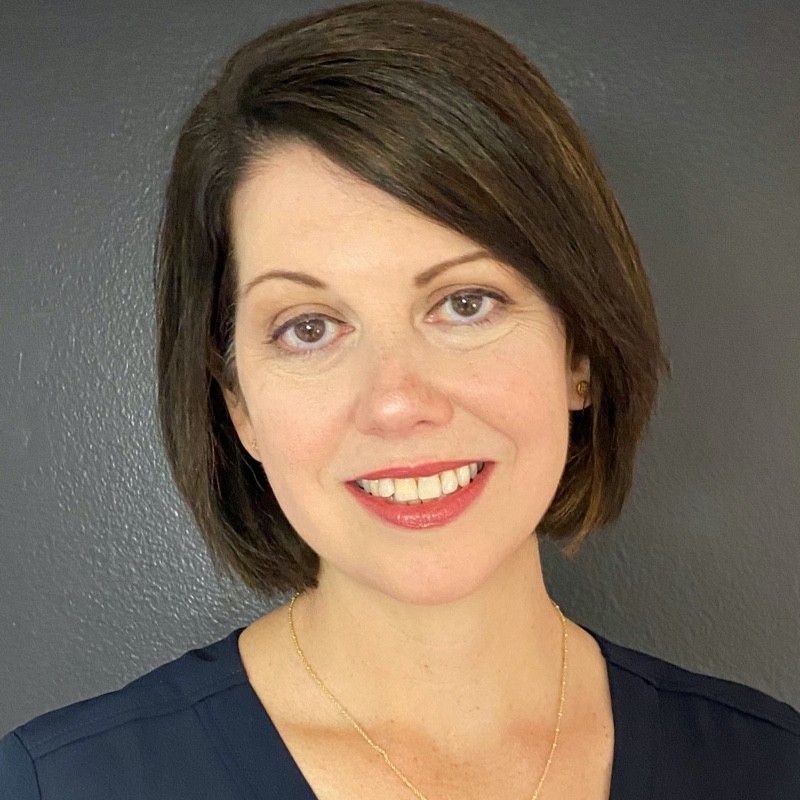How AdventHealth works to nurture and retain nurses
AdventHealth is using the Ovid Synthesis platform to help nurses review literature, and has employed a clinical ladder so they can grow. Megan Milbourne of AdventHealth West Florida talks about the efforts.
Even with the knowledge that the early stages of a nursing career can be difficult, nurses don’t really understand it until they experience it, Megan Milbourne says.
Megan Milbourne, learning operations manager for AdventHealth West Florida

Milbourne is the learning operations manager for AdventHealth West Florida. She says it’s vital to train nurses, and she says the health system’s relationship with nursing schools is invaluable.
But Milbourne also stresses the importance of helping nurses succeed once they are actually on the job.
“We can say all day long, that the first year of nursing is hard, and they know that. There's that idea that it's hard. But actually being in it then, and having that experience, day to day, of what hard really looks like, is a whole other thing for them to comprehend,” Milbourne says.
AdventHealth, which operates 51 hospital campuses, has taken steps to improve nurse retention, for newer nurses and those who have been with the organization for years.
The health system is helping nurses keep up with medical literature and engage in efforts to improve quality, and also has developed a program to help nurses advance in their career. Those efforts are producing success, Milbourne says.
- Read more: Nurses in hospitals: Burnout by the bedside
Evidence-based practice
AdventHealth is utilizing Ovid Synthesis, a digital solution from Wolters Kluwer, to help nurses keep up with the latest medical literature. With Ovid Synthesis, nurses can examine evidence-based literature, and they can also connect with experts to offer more insights, Milbourne says.
The digital platform helps younger nurses and seasoned nurses to get more information about problems they may be encountering and ways to improve care. It also helps embed ongoing education as part of the culture, she says.
In addition, Milbourne says the platform contributes to a healthier work environment because nurses are getting more of the support that they need.
AdventHealth has been using Ovid Synthesis for about a year, Milbourne says, and she’s encouraged with the results. Nurses are using the digital platform for individual and group research projects.
Some of the research projects have made a difference, Milbourne says.
“I can tell you, we've had some really phenomenal projects that have led to improved quality outcomes,” she says. “So there have been projects that the residents have initiated and done that units have really just embraced and changed their practices. So it has affected the different patient outcomes in a very positive way.”
“Our residents, our newly licensed nurses, have done some really phenomenal projects and then when they disseminate that out to the leaders, the leaders are listening,” she adds.
AdventHealth has also scheduled a symposium for nurses to present evidence-based practice projects to their peers, as well as unit leaders and chief nursing officers.
“It really matters and people are listening,” she says. “We pay attention.”
The ‘clinical ladder’
While AdventHealth has worked to recruit more nurses to the organization, the system is also working to retain experienced nurses.
AdventHealth developed a new “clinical ladder” for nurses in the system: the AdventHealth Nursing Professional Excellence Program (PEP). The program was launched in 2022 and offers incentives for nurses who are looking to advance in their career, such as getting additional education or moving into leadership opportunities.
“It’s really taken off,” Milbourne says. “It's been something that we're really, really proud of and we've had a lot of really good interest in it.”
She says the ladder is offering more reasons for nurses to stay within the organization.
“That's just part of what we talk about retention, and nurses wanting to stay, and grow where they’re planted,” Milbourne says. “So that has been something that's been just a real game changer and we're very happy to be able to implement that.”
Newer nurses have also been able to earn points on the clinical ladder, through steps such as presenting research projects.
“It has been something that has allowed us to help retain new nurses and experienced nurses alike,” Milbourne says.
It’s also important to help veteran nurses who want to spread their wings and try different roles. She pointed to AdventHealth’s “career mapping” service, which shows nurses what they need to do if they’re looking to try other roles or move into different departments, such as a nurse in a surgical unit who may be interested in moving into the intensive care unit.
“That career mapping allows them to look at where they are and see what path that they need to be on, and are they on the right track,” she says.
Children’s hospitals face complex challenges dealing with disasters
April 18th 2025Pediatric hospitals deal with different factors in weather-related events and other emergencies. Terri Wilson of the Children’s Hospital Association talks about the challenges and the need for more planning and support.
Telehealth faces a looming deadline in Washington | Healthy Bottom Line podcast
February 12th 2025Once again, the clock is ticking on waivers for telemedicine and hospital-at-home programs. Kyle Zebley of the American Telemedicine Association talks about the push on Congress and the White House.